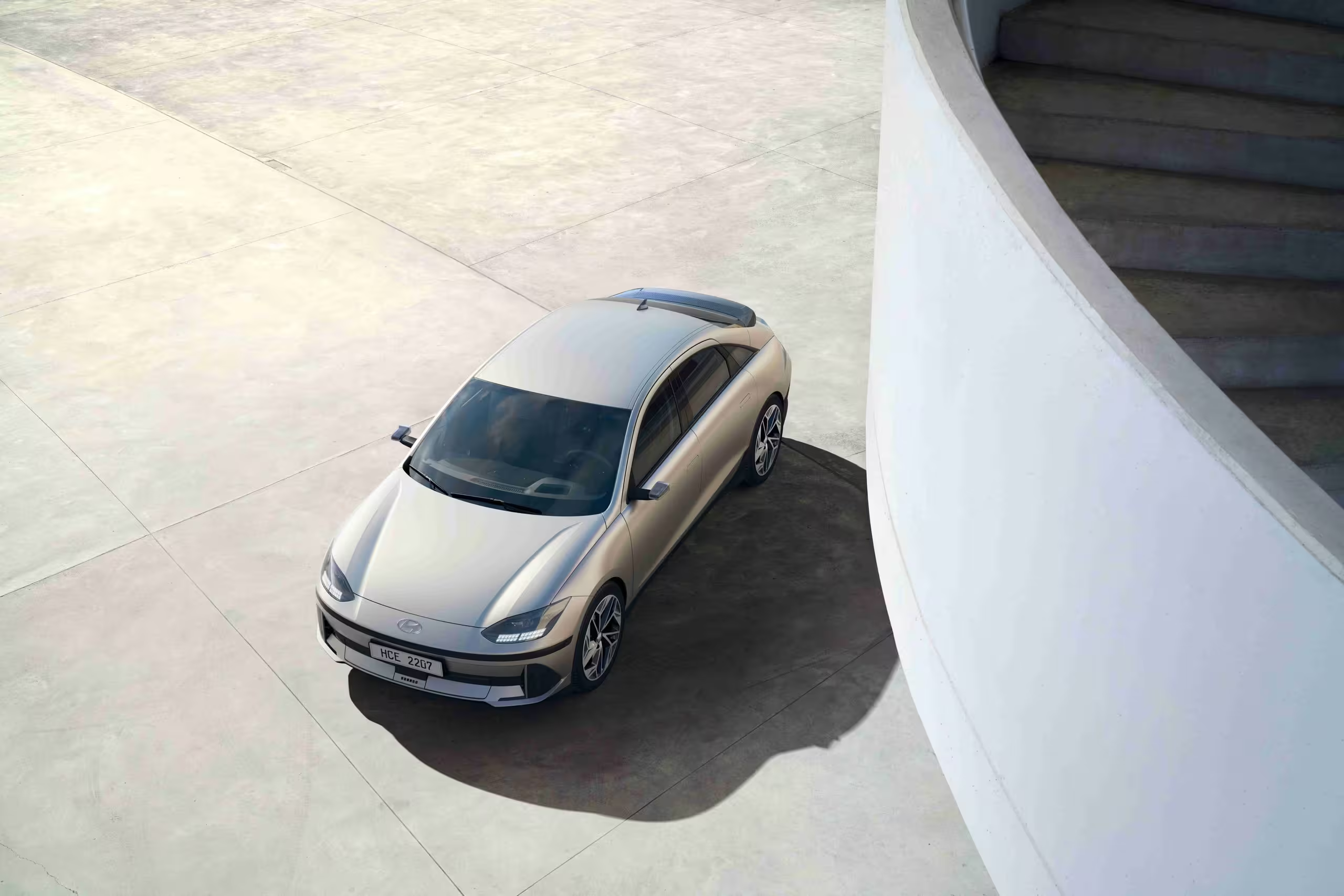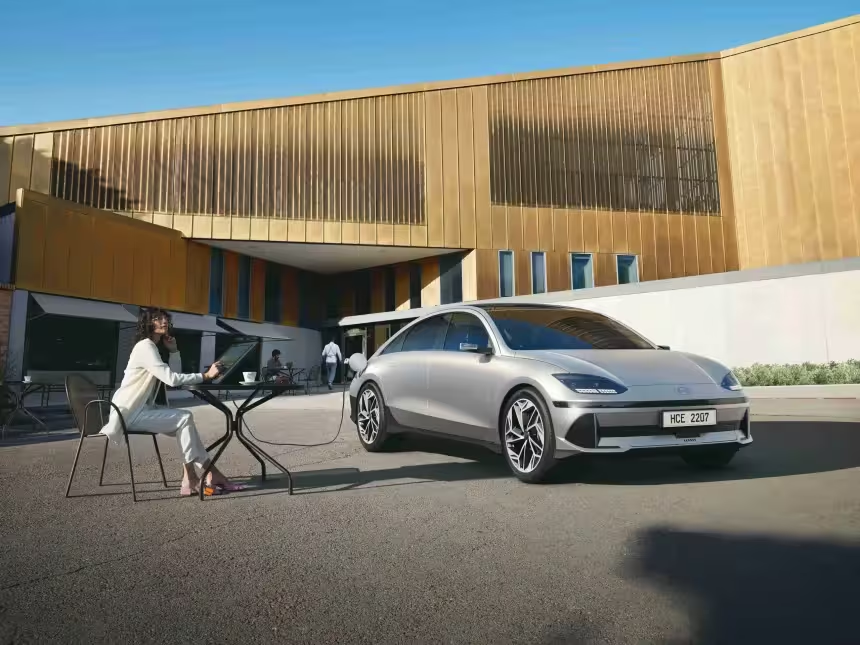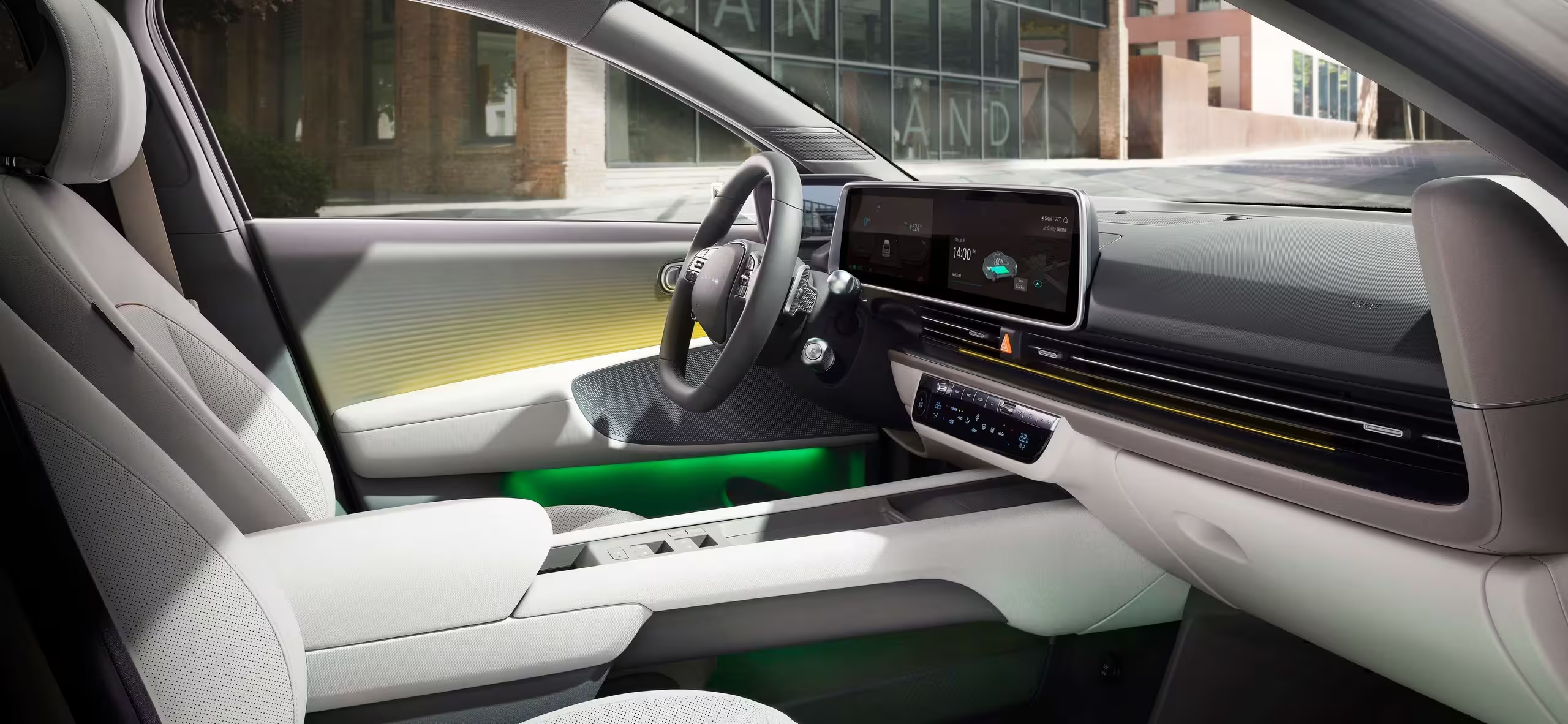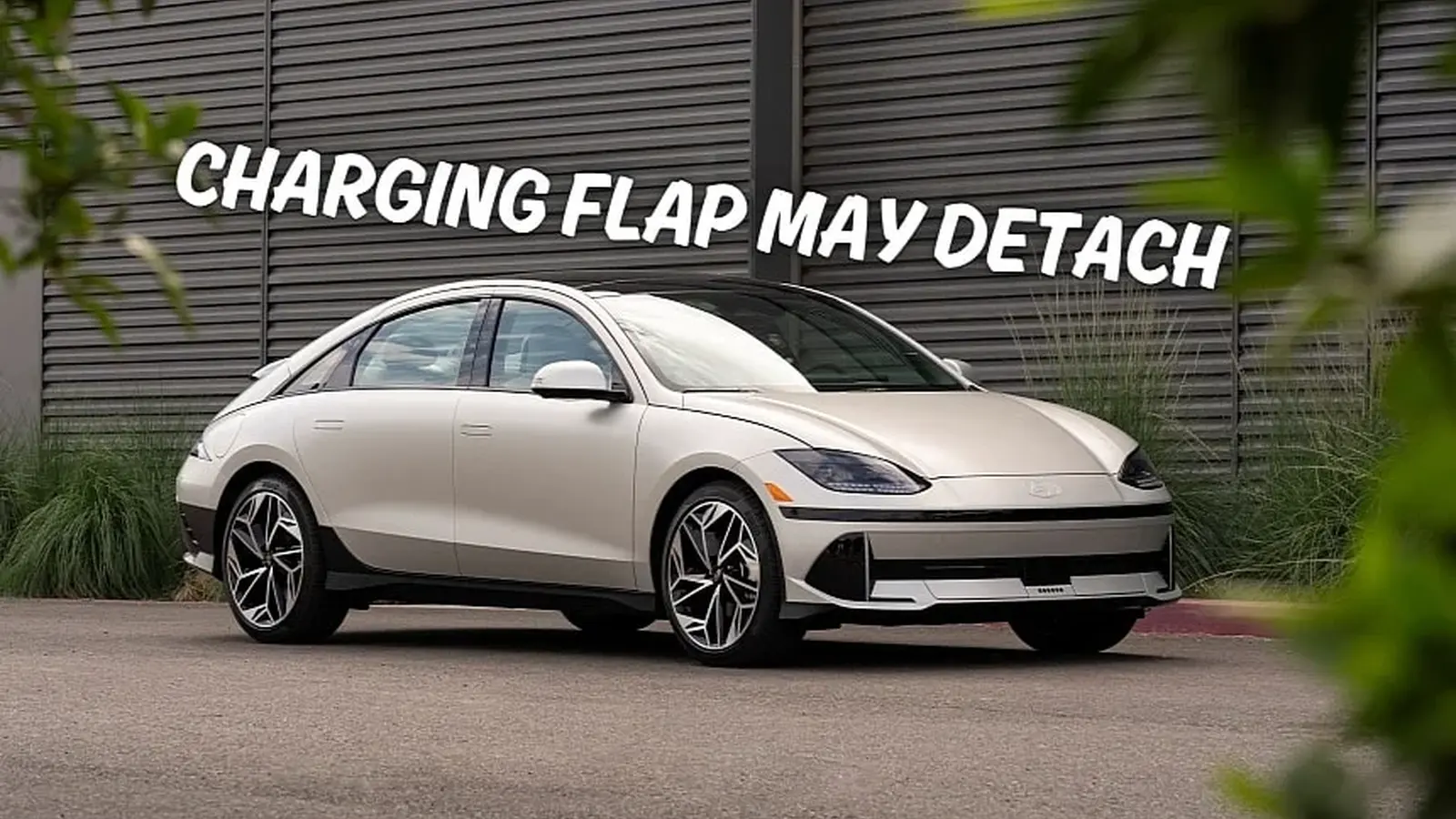6 Minutes
Hyundai issues recall after charging-port door panels detach
Hyundai Motor America has announced a safety recall for certain Ioniq 6 electric sedans after reports that the charging port door panels can detach while the vehicle is in motion. The defect — linked to how the charging flap engages with the outer panel's retaining hooks — creates a potential hazard for other road users if the cover separates from the car at speed.
The affected parts were supplied by LS Automotive Technologies Co., Ltd. of South Korea, and the outer cover carries part number 695C0-KL000. At press time, aftermarket pricing for that cover was roughly $300, though owners affected by the recall will be notified about dealer repairs and the formal remedy process.
What went wrong and how Hyundai responded
According to Hyundai's recall documentation, inadequate engagement between the charging flap and the retaining hooks on the outer panel can lead to detachment. The automaker opened an investigation in April 2025 after receiving a report of the condition in overseas markets; Hyundai has recorded six related reports in the United States.

Hyundai implemented a production change — a revised adhesive application — on October 10, 2024 to address the issue going forward. For cars already in the market, the manufacturer is conducting a formal recall and notifying dealers and customers.
"A detached charging port door panel increases the risk of a crash for other road users," the recall notes. The remedy is focused on securing the flap to the outer panel so it cannot separate during normal driving.
Affected vehicles: scope and dates
Hyundai Motor America estimates up to 31,042 Ioniq 6 vehicles delivered in the U.S. across model years 2023–2025 may be affected. Key production and logistics facts:
- Production dates of suspect cars range from December 14, 2022 to December 26, 2024.
- All affected vehicles were assembled in South Korea.
- Vehicle identification numbers (VINs) for the recalled units were uploaded to Hyundai's database on September 13, 2025; the affected VINs are 17 characters and begin with the letter "K," indicating Korean manufacture.
- Dealers and customers are scheduled to be notified by November 10, 2025.
The South Korean assembly plant that builds the Ioniq 6 also produces Hyundai's larger Ioniq 9 three-row crossover, underscoring the facility's role in the automaker's expanding EV lineup.

What owners should do
If you own an Ioniq 6 within the production date window, check your VIN on Hyundai’s official recall lookup or call your dealer. Hyundai will mail customer notification letters and notify dealers as part of the recall process. Repairs carried out under a manufacturer recall are typically performed at no charge at authorized dealers; confirm specifics with Hyundai or your local dealer when you receive your letter.
Safety tips while waiting for repair:
- Inspect the charging port door for looseness or visible gaps.
- Secure loose covers only by contacting your dealer — avoid DIY fixes that might void warranties or worsen the condition.
- Report any detachment incidents immediately to Hyundai and local authorities if applicable.
Key facts at a glance
- Supplier: LS Automotive Technologies Co., Ltd. (South Korea)
- Part number: 695C0-KL000
- U.S. reports received: 6
- Estimated affected vehicles in U.S.: up to 31,042 (MY 2023–2025)
- Production window: Dec 14, 2022 – Dec 26, 2024
- Dealer/customer notification by: Nov 10, 2025

Model context: Ioniq 6 specs, range and performance
The Ioniq 6 sits alongside the Ioniq 5 in Hyundai’s EV family but takes a fastback sedan form with a focus on aerodynamic efficiency. For the U.S. market the 2025 Ioniq 6 could be configured with a starting price of $37,850, and certain configurations are EPA-rated for up to 342 miles (about 550 kilometers) of range.
Notable powertrain and range details:
- Dual-motor maximum output: 320 horsepower and 446 lb-ft (605 Nm) of torque.
- Rear-wheel-drive battery options: 53 kWh and 77.4 kWh; the larger pack is standard on AWD models.
- Wheel sizes: 18–20 inches; larger wheels reduce EPA-estimated range.
- To achieve the advertised 342-mile range, the combination is 18-inch wheels, rear-wheel drive, the 77.4-kWh battery and the SE trim.
- Maximum charging rate: up to 350 kW fast-charging capability.
- Top speeds for the regular range of models exceed 115 mph (185 km/h), depending on configuration.
Looking ahead, Hyundai is bringing the Ioniq 6 N performance variant to the U.S. for the 2026 model year. The track-focused dual-motor Ioniq 6 N is expected to accelerate from 0–62 mph (0–100 km/h) in about 3.2 seconds (roughly 3.0 seconds to 0–60 mph) and carry a top speed estimated at 257 km/h (160 mph) in South Korea, delivering performance levels similar to the Ioniq 5 N.

Why this matters for EV buyers and the market
Component durability and fitment are critical in electric vehicles, where exposed external parts such as charging flaps must withstand frequent use, environmental stresses and high-speed airflow. A recall like this underscores the complexity of EV manufacturing: a small trim component can have outsized safety implications.
For buyers and enthusiasts, the Ioniq 6 remains a compelling electric sedan in terms of efficiency and range, but this recall is a reminder to track official notices and ensure any required remedy is applied promptly.
Quote
"Hyundai is notifying owners and dealers and implementing repairs to secure the charging door panels," the recall notification states, emphasizing customer outreach and correction of the assembly issue.
In short: if you own an Ioniq 6 produced between December 2022 and December 2024, verify your VIN through Hyundai and arrange dealer service if your vehicle appears on the recall list. Keeping small exterior components secure isn’t just cosmetic — it’s an important safety consideration for EV owners and other road users alike.
Source: autoevolution


Leave a Comment